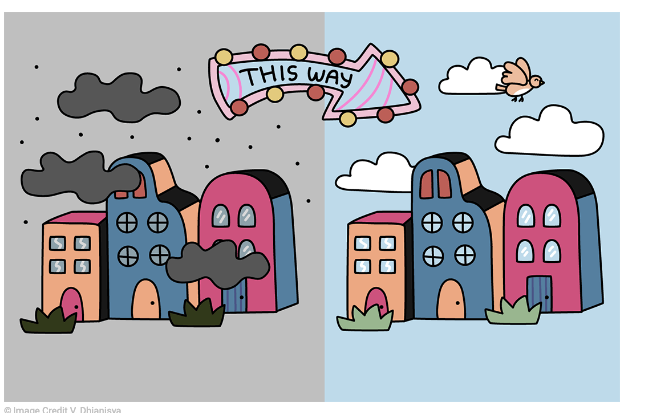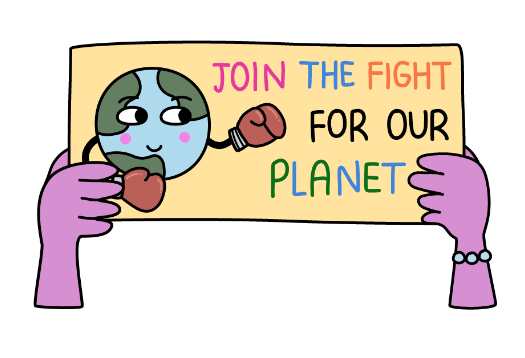Want to make strides toward a healthier lifestyle? Explore our Hi-5 For Health series to engage with young audience, glean insights from experts, partake in discussions, and tackle challenges. Feel free to download materials in pdf to review them offline and share it with your peers!
Teen advocates for clean air in Mongolia
Meet Tuguldur, a 17-year-old working tirelessly to combat air pollution problems in his home country Mongolia. Want to learn more about air pollution in Mongolia?
Know the facts
Air is invisible, yet it is all around us! Air is a mixture of gases, mostly oxygen and nitrogen, which plants, animals, and humans all need in order to survive.
Air pollution happens when harmful substances (pollutants) are released into the air - inside our homes or outside. This can damage our bodies and even increase our chances of getting certain diseases.
Air pollution can happen from natural sources like wildfires, dust, and volcano eruptions. But mostly, our human actions cause pollution from things like power plants that burn fossil fuels (coal, oil, natural gas), fertilizers and animal waste from farming, wood burning stoves, driving cars, flying planes, and more…
1.8 billion people under the age of 15 breathe air that is so polluted it risks their health and development. Our actions as humans not only contribute to climate change but also directly affect our health.
- Pollutants in the air can enter our lungs and blood system, which increases our risk of heart diseases, respiratory diseases, and lung cancer.
- Being exposed to air pollution over a long period of time can change our brain structure and lower our ability to do well in school and focus during exams.
What are the signs of air pollution?
Dryness/irritation in your eyes, headache, fatigue, allergies, or shortness of breath.
Does your neighborhood have factories, cars, trucks, or power plants? If so, then you are probably exposed to high levels of air pollution.
If you live with an asthmatic person, you might witness them having more severe asthmatic attacks, shortness of breath, chest pain, coughing, or wheezing.

@Image Credit V. Dhianisya

@Image Credit V. Dhianisya